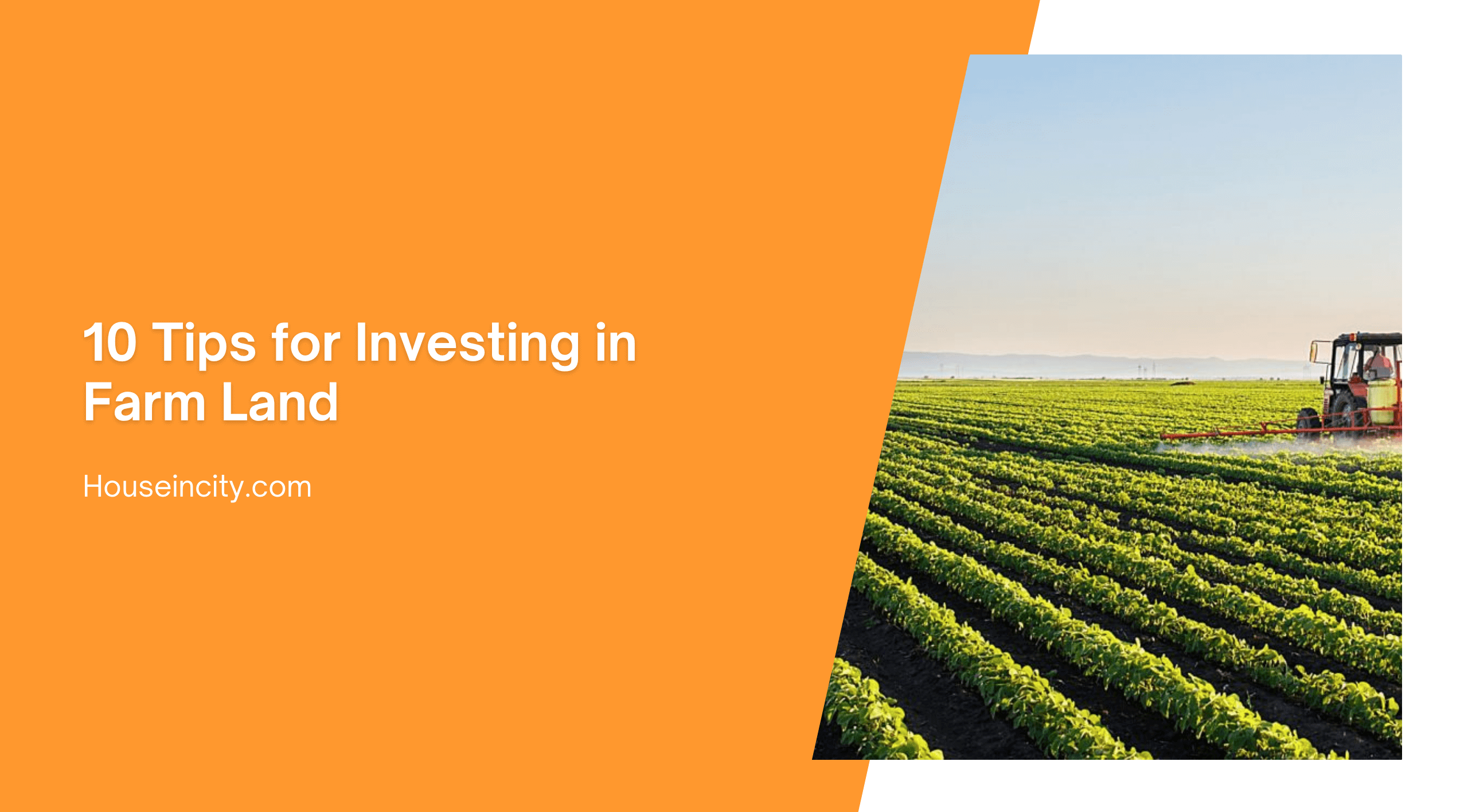So you’re looking to invest in some farm land, but you want to make sure you’ve covered your bases. Some questions that may come up are: Is the property considered farm land? Is the zoning ideal to what I want? What is my overall goal- to sell or to develop? Maybe I just want to sit on it and see what happens. Listed out below are ten tips to help you with your decision to invest in farm land.
Make sure it’s actually farm land
Farm land is defined as property that has been used to grow rows and/or crops of food, plants, timber or orchards, and that could also be classified as a pasture for animals to graze in or to produce forage (source: farmlandinvestorpartnership.com). Simply buying a large field and passing it off as farm land won’t work. If it doesn’t meet these requirements, then it’s probably not zoned as farmland, and you’ve just made a costly mistake.
Where should I look?
According to farmlandinvestorpartnership.com, the cost of farmland varies from country to country. While in the United States the average cost is $2,700.00 per acre due to high development demand, in Canada (specifically Saskatchewan) the farmland sells for roughly $350 an acre. This is probably because no one wants to live there, so the demand is low. However, if you’re looking for bulk, this isn’t a bad way to go.
Do I sit or do I sell?
Again, it depends on where you are. While it may be nice to say, “hey, that property will be worth something in 20 years” you have to consider what your yearly property taxes will be, as well as the possibility that in 20 years no one may even want the land. However, investors will tell you to watch the growth patterns of your city and plan accordingly. This article is being written form a 12 story office complex that 15 years ago was in a sea of corn, so it’s safe to say waiting can pay off inc certain situations.
Should I rent the land?
It never hurts to make some money back while sitting on it. You could go one of two ways here- do you want to outright rent it for a set amount, or keep crop rights and split the profits? Both have their advantages depending on what the market looks like. Again, if you’re looking to pay property tax for several years, a yearly farm lease might not be a bad idea.
Where can I find interest in a short-term farm lease?
Farmers don’t grow for themselves as much as they once did- now it’s usually at the behest of corporations that want the food for mass production/sales. Contact local companies and offer them the chance to use your land for a decent reimbursement.
Do I buy all at once or bit by bit?
Well, how much do you have on you? Sometimes, if the market could go either way it never hurts to purchase bit by bit. Also, if you try to make a land grab, farmers and property owners have been known to suddenly see worth where there wasn’t any before. Slow and steady buying is never a bad thing, but if you know the property is needed and that owning all of it now will pay off, go ahead and take the plunge.
How do I buy all this land? I’m not a millionaire!
Investors. Find yourself a group of investors and work together to develop or sell the land. You won’t make as much as if you were the only one involved, but the more of you there are, the more land you can acquire and the better the chance you can turn it around.
Should I rezone?
Only rezone if you KNOW there’s a client who needs the land and will pay more for the rezoning process. My kneejerk reaction to this one is to say no and let the buyer do it, because rezoning can take a long time and doesn’t always go the way you want. Plus, what if you rezone to their specifications and they back out? Unless you had a contract already in place, you’re stuck.
How does farmland help me financially?
Aside from selling it? Land is land, and that doesn’t change. Putting your money into land is a solid investment, and it’s one you can always use later. Gold and silver may shift, but the bank will always prize property.
When should I sell?
Let the market come to you. The name of the game is patience, and if you get to anxious, you’ll get taken. If a super store or group of investors wishes to develop the property, they will approach you with an offer, and then you can deal. If you go begging them, you’ve already put them in a position to win.
